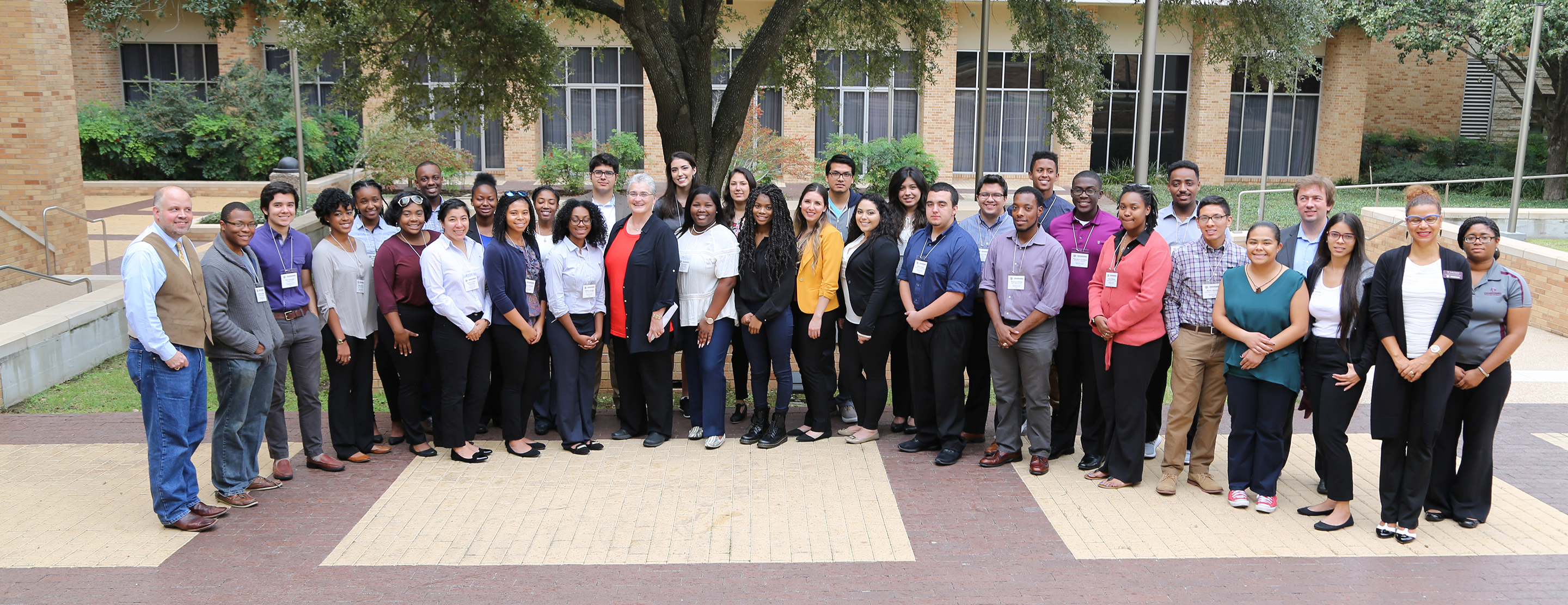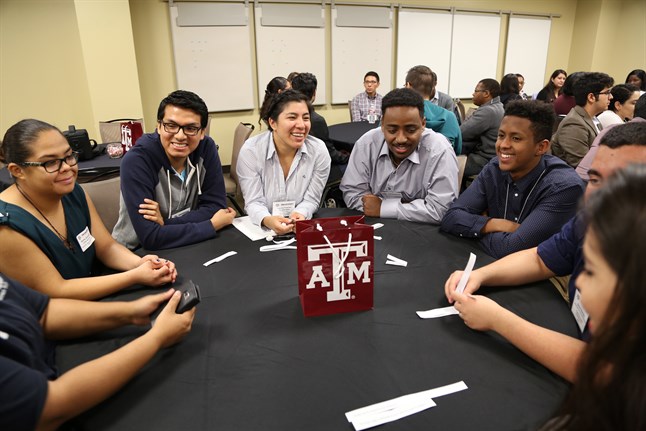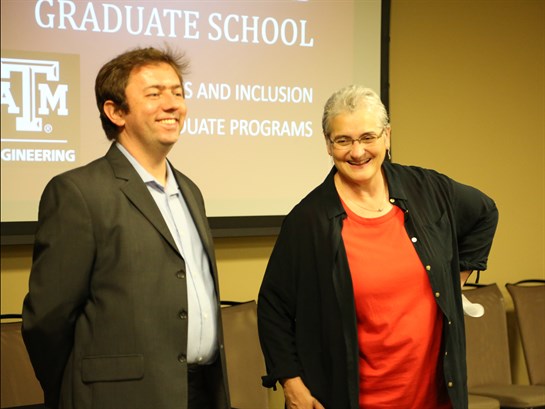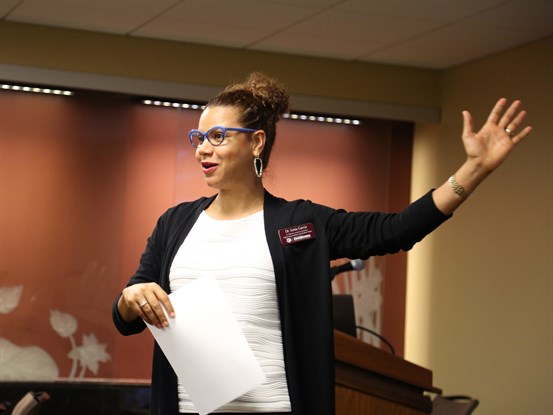
The Texas A&M University College of Engineering provided 38 students from around the nation the opportunity to learn about the benefits of earning a graduate degree in engineering.
Trajectories Toward Graduate School, organized by Access and Inclusion and Engineering Graduate Programs, brought students who are historically underrepresented in engineering to campus for a two-day event.

The focus of the event was to provide students with the tools and support needed to successfully apply to graduate school, whether or not they should choose to apply to Texas A&M.
Dr. Karan Watson, provost and executive vice president, welcomed the students with a keynote address. She drew from her own personal experiences as a female Native American who went against the grain to pursue a doctorate in engineering during a time when doing so was mostly unheard of. A graduate degree offered Watson opportunities she would not have had otherwise, she said. Along the way, she discovered that teaching was her passion.
“I get to do engineering, I get to manage, I get to finance things, I get to mentor, and I get to teach,” Watson said. “There’s no way I could have had all those options in one job except for going forward and going to grad school.”
Watson told the students that graduate school isn’t for everyone, but for those who choose it, a graduate degree can propel their careers in ways they may not have anticipated. Watson joined the Texas A&M faculty in 1983 and has served as a Regents Professor in the Department of Electrical and Computer Engineering and the Department of Computer Science and Engineering. In 2011, she was appointed provost and executive vice president of the university.

“What’s important is that you find your passion,” she said.
Mengistu Zebulan, a sophomore mechanical engineering student at the University of Colorado, said graduate school was never an option he had considered. Instead, he always thought he’d go straight into the workforce.
“But seeing all these people and meeting everyone and hearing all their stories and seeing the different opportunities out there — it doesn’t necessarily have to end at a bachelor’s,” he said.
University of Arkansas junior Theodore Christian said he is now considering applying to Texas A&M. Christian, who is from Arlington, Texas, said he likes the idea of moving closer to home for graduate school.
“I’m really interested in the programs here, particularly the aerospace program,” he said. “I’ve been to a few grad preview days, and this has been the best one.”
Christian said he’s considering pursuing a Ph.D. and would like to focus on rockets and propulsion.

University of California, San Diego student Sandra Fuentes, who would like to pursue her doctorate in materials science, was also interested in learning more about graduate programs at Texas A&M.
“So far I find that there is a lot of support for minority students, and just for students in general,” she said. “I would definitely consider coming here.”
During the event, students received guidance on preparing applications and finding financial support. They also participated in speed mentoring sessions with current engineering students and interacted with faculty and graduate advisers.
Dr. Michael Demkowicz, associate professor in the Department of Materials Science and Engineering, participated in a similar program at Massachusetts Institute of Technology.
When he joined the faculty at Texas A&M, he met with Dr. Sonia Garcia, senior director of Access and Inclusion, and worked with her to co-found Trajectories Toward Graduate School.
During the event, Demkowicz spoke to students about strategies to become a competitive graduate school candidate. He said when a certain group of students is underrepresented among the graduate school community, the college can miss out on great Ph.D. and Master of Science candidates.
“If we want to recruit the best students for our graduate programs, we have to make a special effort to make sure that students from historically underrepresented groups have all the information, guidance and encouragement they need to make an informed decision about applying and to craft winning applications,” he said.
Garcia said she received positive feedback from the event.
“It was very exciting to host such a dynamic group of students and see their excitement about pursuing a graduate degree in engineering,” she said. “It is imperative that we give historically underrepresented engineering students the support and tools they need to further their education. By diversifying our classrooms and workforce, we are bringing a multitude of talents and perspectives to the table that might not have been present before.”
Many people contributed to the success of this event, including Dr. Samuel Merriweather, associate director of the Louis Stokes Alliance for Minority Participation, Jules Henry, senior academic adviser for the Department of Materials Science and Engineering, and Karla Gonzalez Coronado, a graduate student.
Students from the following universities attended the event: Texas Christian University, Tuskegee University, the University of Maryland, Syracuse University, the University of Arkansas, the University of Connecticut, the University of Texas at El Paso, the University of California, San Diego, the University of Colorado Boulder, California State University of Sacramento, the University of Texas Rio Grande Valley, Virginia Tech University, the University of South Florida and Texas A&M University.